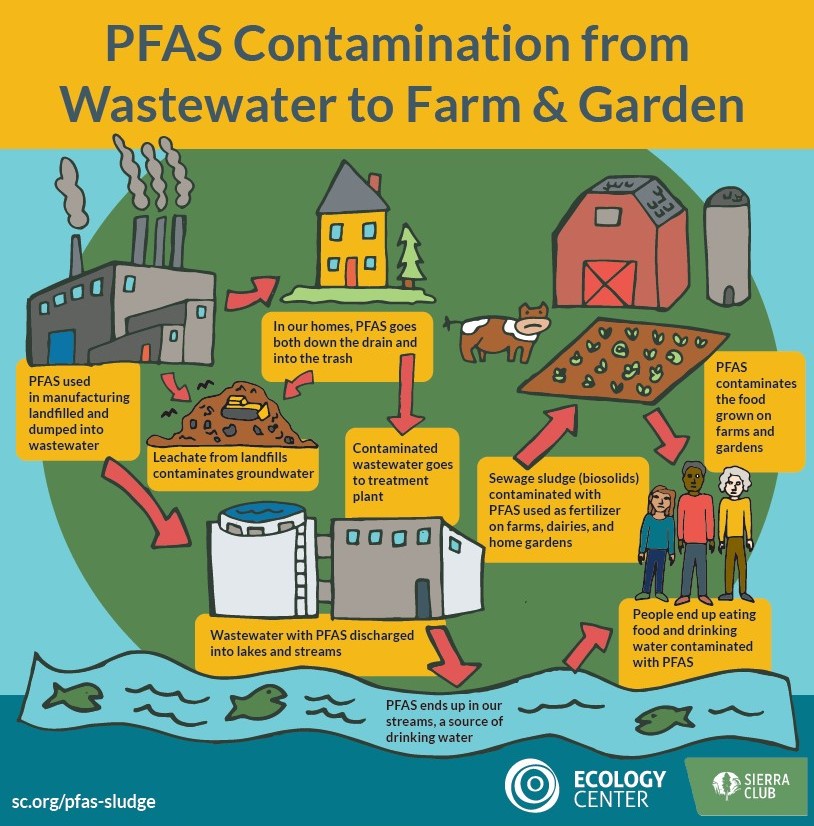A recent report found concerning levels of toxic PFAS (per- and polyfluoroalkyl substances) found in home garden fertilizer products widely sold throughout the United States.
The report, based on testing conducted by the Sierra Club and the Ecology Center, found PFAS chemicals in nine fertilizers made from sewage sludge -- commonly called “biosolids” in ingredient lists -- and maps more than 30 companies selling sludge-based fertilizers and composts for home use across the US. Eight of the nine products exceed the screening guideline for PFOS or PFOA set in Maine, the state with the strictest safeguards for PFAS levels in sludge spread on agricultural lands.
PFAS are “forever chemicals” that don’t break down in the environment and are highly toxic to people. They are virtually unregulated by the US government, meaning that industries are legally allowed to flush PFAS chemicals down wastewater drains where they settle out in the solid materials during wastewater treatment.
Across the US, sewage sludge is frequently spread on farmland, pastures, and sold to home gardeners as a source of fertilizer deemed to be a “beneficial reuse.” But PFAS residues in sludge-based materials have been found to contaminate farms and dairies as well as water resources.
Test findings highlight the urgent need to keep toxic chemicals like PFAS out of the wastewater system and biosolids. Ultimately, PFAS must be prohibited from use in consumer and industrial products, with only limited exceptions for currently unavoidable uses.
